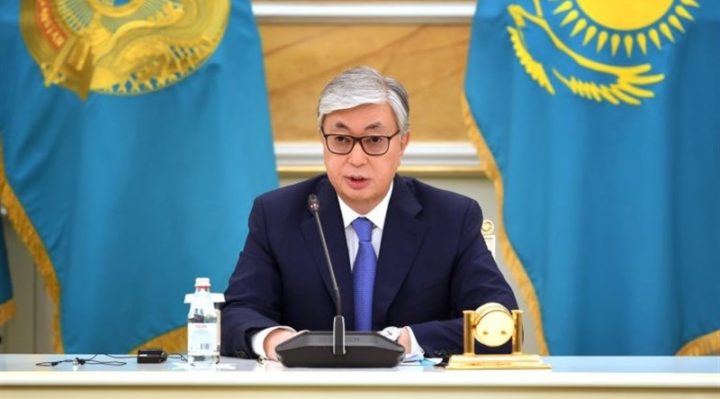President of Kazakhstan, Kassym-Jomart Tokayev, in a televised address to the nation, explained the government’s extraordinary measures to contain the novel Covid-19 coronavirus. He also announced a package of state support for businesses, healthcare, and the social sphere.
Since January, Kazakhstan has taken strict measures to prevent the entrance of the coronavirus in the country. From the early days, the authorities introduced a stringent quarantine system for people arriving from unfavorable epidemiological zones. Kazakhstan registered the first Covid-19 case on 13 March. As of 18 March, the number of infected was 35 people. 1665 people are at in-patient quarantine; 1076 people are at home quarantine.

On 16 March, the country introduced a one-month state of emergency, which includes tightening public security and a ban on mass events.
“Many of us made plans for the upcoming holidays [Nauryz is a spring equinox, one of the favorite holidays for the Kazakhs], some wanted to attend concerts, sports competitions, other events. Unfortunately, for the sake of our nation’s health, we will have to refrain from all these,” the President explained.
The restriction on the functioning of large trade entities has been introduced, but grocery and essential goods stores will continue to work. Entertainment centers, cinemas, theaters, galleries, and many other facilities are closed. Schoolchildren are on early vacations, university, and college students have been transferred to online education. The Government introduced restrictions on an entry in and exit from the territory of Kazakhstan.
However, these measures do not apply to freight transport. The sanitary-epidemiological regime has been tightened at checkpoints on the state border, at stations and airports.
“The Government has allocated reserve funds for the purchase of medicines, test systems, and laboratory equipment. There is a sufficient number of beds in hospitals in the country,” Tokayev said.
The President also announced measures to support the economy due to the global crisis. He reminded that the country had accumulated international reserves of about $90 bn. “This is a serious guarantee to ensure the stability of our economy and fulfilling the government’s social obligations,” Tokayev said.
At least 300 bn tenge ($690 m) will be allocated to support entrepreneurs and create new jobs.
Additionally, the Government plans to subsidize loans and introduce tax incentives, and manufacturers will be provided with additional liquidity of up to 400 bn tenge ($920 m). According to Minister of National Economy, Ruslan Dalenov, this will “maintain business activity and create 200 thousand new jobs”.
It is also planned to provide deferred payments for up to 90 days to individual entrepreneurs and small and medium-sized businesses affected by the crisis. Mr.Dalenov said that agriculture would get increased lending and tax incentives. “It is supposed to exempt from VAT on the import of biological assets, including cattle and breeding chickens. Also, almost 7 thousand agricultural producers will be exempted from paying tax on agricultural land,” the Minister added.
